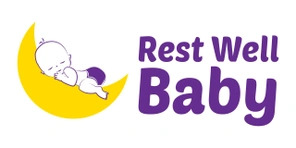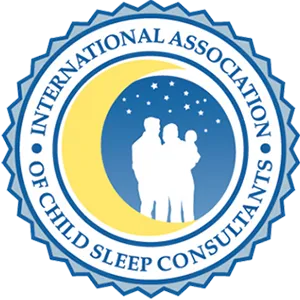Blog

Teething and Sleep
Teething and Sleep: What Parents Need to Know
Teething can bring drool, discomfort, and interrupted sleep. As a pediatric sleep coach, I often hear from parents struggling with their child's sleep during this time. It's challenging, but knowing how teething affects sleep can help you manage it better and get more rest.
Let's be clear: teething can impact sleep. The inflammation and discomfort in the gums can certainly make it harder for babies and toddlers to settle down and stay asleep. However, it's crucial to differentiate between genuine teething pain and other factors that commonly disrupt sleep in this age group.
What Teething Actually Looks Like (Sleep-Wise):
While every child is different, teething-related sleep disturbances often manifest in a few key ways:
Increased night wakings: Your little one, who might have been sleeping through the night, suddenly starts waking up more frequently, often crying or fussing.
Difficulty settling at bedtime: The discomfort can make it harder for them to wind down and fall asleep initially.
Restlessness: Even if they aren't fully awake, you might notice more tossing and turning or general fussiness in their sleep.
Early morning awakenings: Sometimes, the discomfort can rouse them earlier than usual.
Distinguishing Teething from Other Sleep Disruptors:
It's easy to attribute every sleep hiccup to teething, but other common culprits exist:
Developmental milestones: Growth spurts and new skills can temporarily impact sleep.
Changes in routine: Travel, illness, or even a slight shift in schedule can throw things off.
Sleep associations: Relying on rocking, feeding, or holding to sleep can lead to more night wakings regardless of teething.
Hunger or thirst: Ensure your child is getting adequate nutrition and hydration during the day.
Temperature: An uncomfortable room temperature can disrupt sleep.
Strategies for Supporting Sleep During Teething:
While you can't stop teething, you can implement strategies to minimize its impact on sleep:
Manage the discomfort: Offer safe teething toys (chilled, but not frozen), gentle gum massage with a clean finger, or age-appropriate pain relief medication as recommended by your pediatrician. Administer any medication about 30 minutes before bedtime to maximize its effect for sleep onset.
Maintain a consistent bedtime routine: A predictable routine signals to your child's body that it's time to wind down, providing comfort and security even when they're uncomfortable.
Offer extra comfort and reassurance: During wake-ups, offer brief comfort and reassurance, but try to avoid creating new sleep associations. A gentle pat or a quiet "shhh" can often be enough.
Ensure a conducive sleep environment: A dark, quiet, and cool room is essential for good sleep.
Rule out other causes: Before solely blaming teething, consider other potential sleep disruptors and address them accordingly.
When to Seek Professional Help:
If sleep disruptions are severe, prolonged, or accompanied by other symptoms like fever, excessive irritability, or refusal to eat, it's essential to consult your pediatrician. They can rule out other underlying issues.
Navigating the teething phase can feel exhausting, but remember it's temporary. By understanding the potential impact on sleep and implementing supportive strategies, you can help your little one (and yourself!) get through this stage with a little more ease. Consistency, patience, and a supportive approach are your greatest allies in fostering healthy sleep, even amidst the drool and discomfort.
If you're facing challenges, please feel free to reach out to book your 30 minute Sweet Dreams Starter call to learn how I can help your family get the gift of sleep.
Yours in sleep,
Tracie / Rest Well Baby
www.restwellbaby.com
Tracie Kesatie is a Certified Gentle Sleep Coach dedicated to helping families with little ones 0-10 years of age achieve a restful night's sleep.
Disclaimer: This article provides general information and is not intended as medical advice. Always consult with your pediatrician for any concerns about your child's health.
Blog





